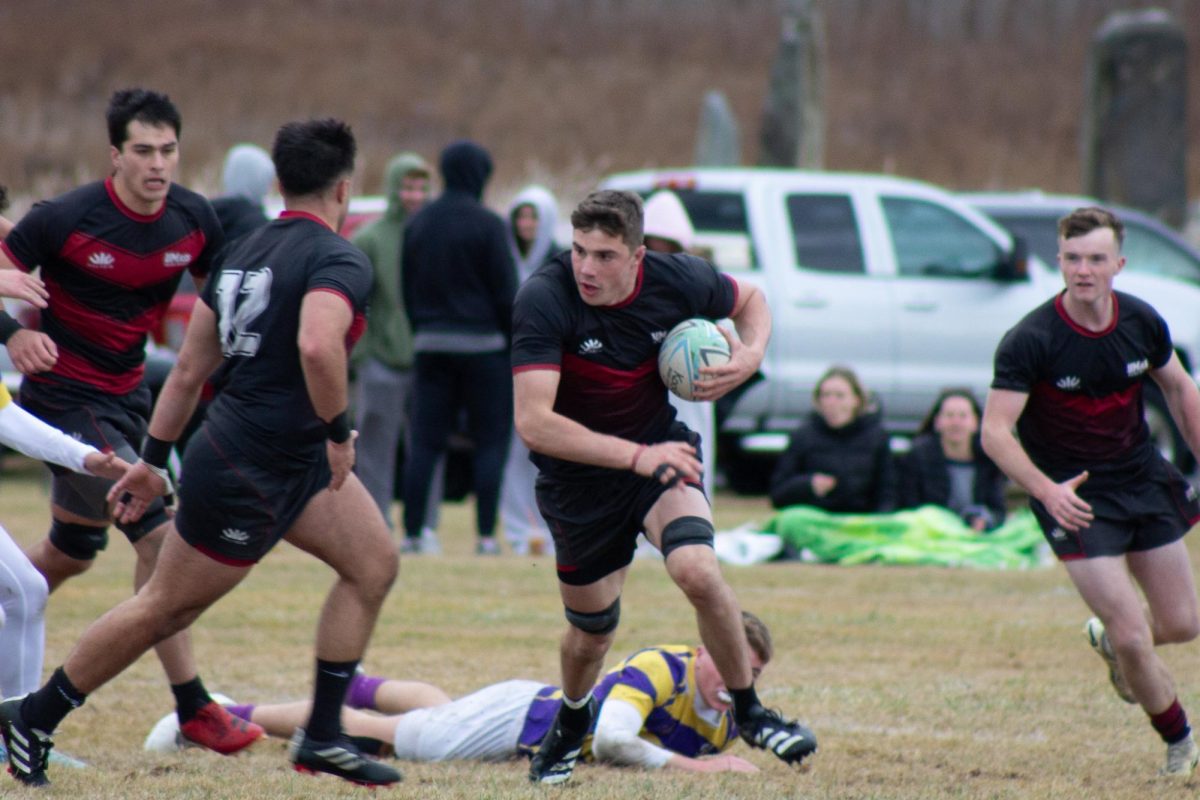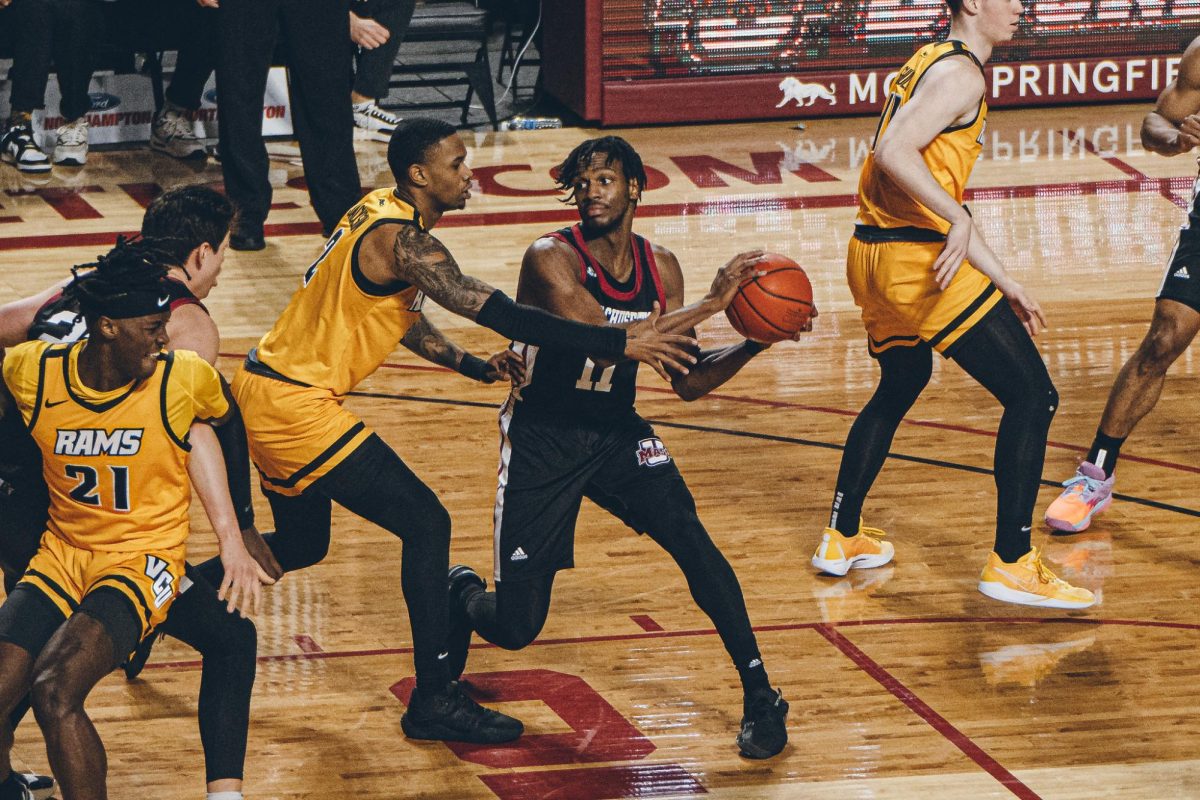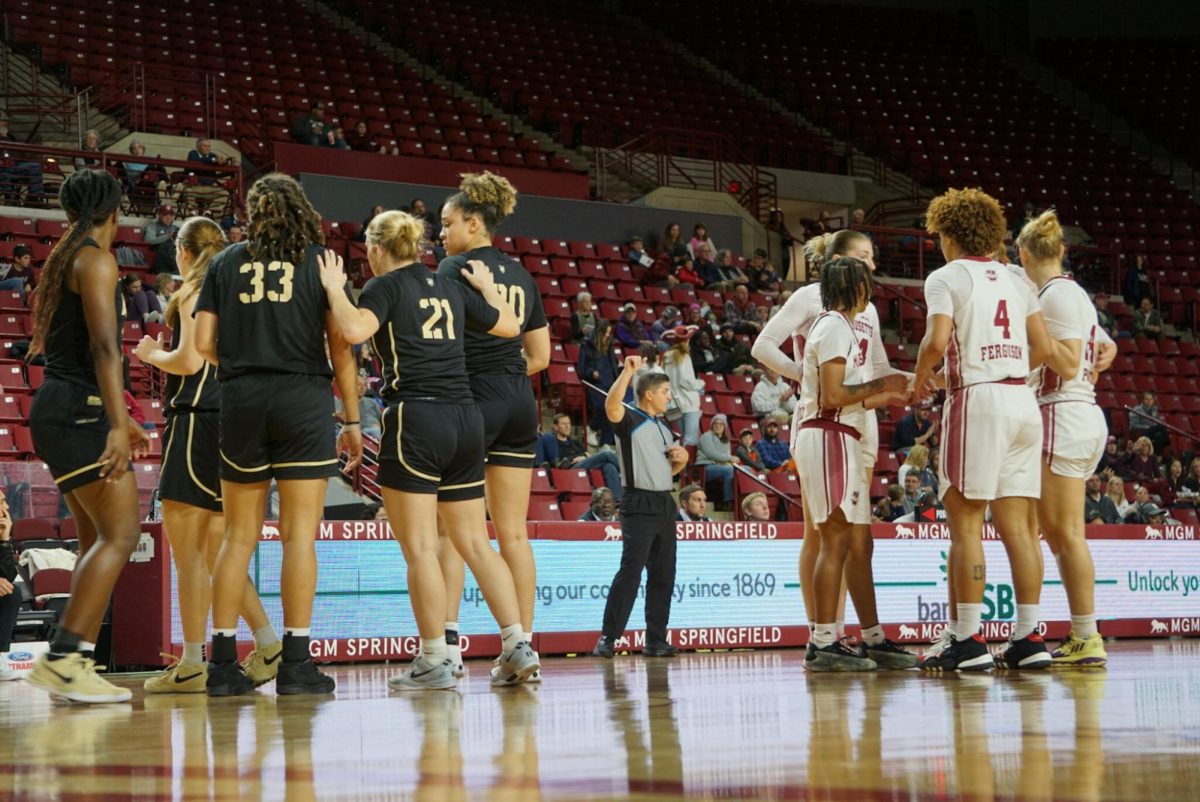
In an effort to educate the University of Massachusetts community on healthy, sustainable eating habits, the Center for Multicultural Advancement and Student Success hosted a community-building event titled “Half Empty or Half Full: What is Sustainability?” Friday in Wilder Hall.
The theme of sustainable eating was chosen because, according to Joyce Vincent, associate director of CMASS, “UMass has gained recognition for our Sustainable UMass (program), premature gardens, supporting local farmers and promoting good eating habits.”
Vincent said the event was chosen because November is considered Native American/Indigenous Heritage Month and there is a large Native community on campus focusing on health and diets this year.
“We thought we would focus on sustainable foods and American consumer culture as a means of supporting the focus of the Native community, and also creating an annual bridge program between the Center for Multicultural Advancement, Sustainable UMass, permaculture gardens, Stockbridge agriculture disciplines, public health, anthropology, sociology, economics, pre-med, nursing and legal studies,” Vincent said. “In other words, a future interdisciplinary collaboration with cross cultural connections for our campus.”
Those who attended the interactive event, which was designed by the undergraduate staff of the Cultural Enrichment Office at CMASS, were separated into three groups – families, observers and reporters.
Those who played the role of families were given a paper with their budgets, size of their families and dietary restrictions. The families, which were from different socio-economic statuses, were then asked to plan out purchases of a week’s worth of groceries from Walmart, Stop & Shop or Whole Foods with their given constraints.
The observers had to watch the families’ behavior when deciding what to buy at different stores and also watch their interaction with reporters. The reporters were allowed to interact with the families and understand the motives behind the food purchases families made.
“Beginning this (activity), we all knew it was going to focus around grocery shopping,” said Charlotte Mills, an undergraduate staff member at the Cultural Enrichment Office. “As we started looking at all the different factors that play into a person’s choices, we took into account all these different issues when we were designing the activity.
“We were trying to figure out budget, social situation and statuses. We realized that there are a lot of underlying issues. So we thought, ‘Why don’t we (include) those issues we have encountered in the activity? Why don’t we make those the center of this program and instead use the grocery component as just a way to facilitate this conversation?’”
The activity was designed for students to understand why different families from different socio-economic statuses are unable to feed their children with the same type of food. Working class families had to purchase food items that were not necessarily the healthiest, but very filling. Meanwhile, wealthier families were able to incorporate more vegetable and fruits into their diets and provide their children with balanced meals.
“The food you eat has a huge impact on your ability to function in society,” said Yisheng Pan, an undergraduate staff member of the Cultural Enrichment Office who also participated in the planning of the activity. “For kids especially, say you are in a working class family and your parent can’t buy the healthiest food, you end up eating a lot of processed food like chips, drinking a lot of soda and eating a lot of cookies, and that is just not good brain food. It is going to hinder you in school
“So, because you were not able to get good nutritional food your entire life, that (may) influence your future. Because your parents were working class, you (may) also be working class in the future.”
Pan said not only are healthy eating habits vital to every child’s success, but educating people on the social issues of why some children are not able to perform at their best is just as important.
“Because we are college students and we are here learning, we are all someday going to be leaders of some sort in all these various fields,” Pan said. “So, we should be aware of these things so maybe we can actually decide to do something that will make some changes.”
Sorelle Mbakop can be reached at [email protected].


















